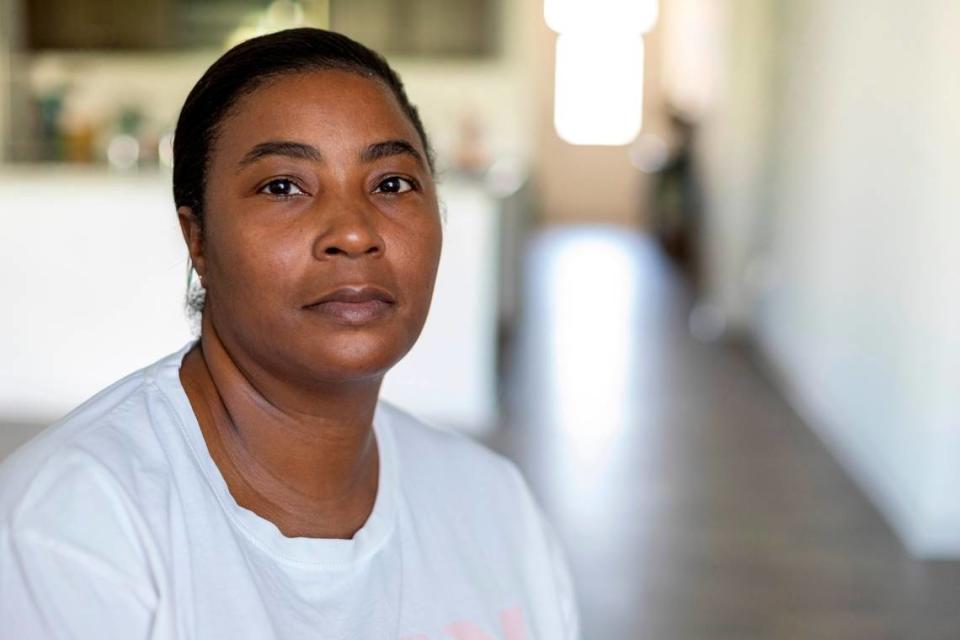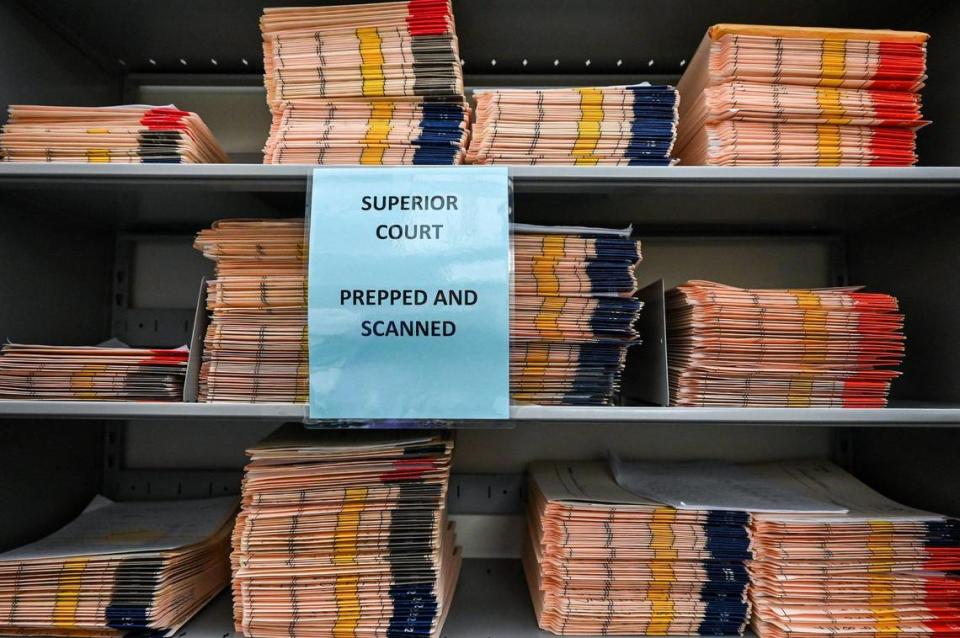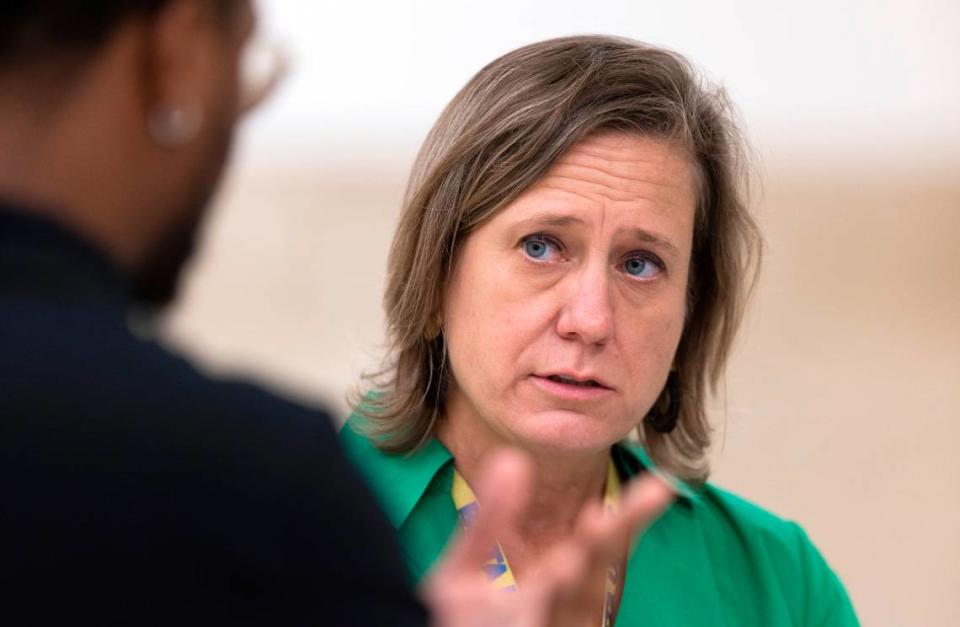3 things we learned about NC’s troubled eCourts launch
In the state’s busiest courthouse this week, clerks, attorneys and judges are preparing for a software launch designed to bring much-needed modernization to the state’s antiquated judicial system.
On Monday, Mecklenburg County will become the fifth courthouse to launch eCourts, a $100 million suite of tools developed for the state by Texas-based Tyler Technologies Inc. The vision for eCourts is simple: a “virtual courthouse” that integrates all aspects of the legal system into software accessible from just about anywhere.
But court officials are wary — and not just because of the scale of this monumental transformation from a paper-based system to one operating in the cloud. Since courthouses in Wake, Johnston, Harnett and Lee counties rolled out the software in February, complaints about eCourts have been numerous.
Wrongful arrests, court slowdowns: Despite complaints, eCourts expansion moves forward
And the issues some allege are caused by the transition are affecting more than just attorneys and court workers — they’re impacting the public too.
After weeks spent digging into the complaints, and talking with lawyers, court officials and defendants, here are three big things The News & Observer and The Charlotte Observer learned about the upgrade and its impacts.

People were jailed who shouldn’t have been
In May, a pair of North Carolina residents filed a federal lawsuit against Tyler Technologies and several other law enforcement agencies, alleging they were wrongfully jailed because of issues with the eCourts rollout.
That list of plaintiffs is likely to grow, lawyers who brought the suit say, and it could become an even larger class action.
The N&O spoke to a Clayton woman who was arrested, strip searched and held for hours in jail related to traffic charges that had been resolved for more than eight months. Another man was detained twice — once when he showed up for his scheduled court date — and only managed to avoid jail time because he had paperwork proving he had already been arrested and released on bond.
Both have signed onto the suit and will likely appear in the updated complaint filed in the coming weeks.
Officials with the N.C. Administrative Office of the Courts maintain they’ve found no evidence of software errors that have resulted in wrongful arrests. But Wake District Attorney Lorrin Freeman acknowledged that an extra manual step court clerks must now complete to recall arrest orders likely contributed to an uptick in people wrongfully jailed — at least temporarily.
Exactly how many, though, is hard to say.

More labor, lagging software and shuttered courts
Some court officials who spoke with The N&O and The Observer noted that things have come a long way since the eCourts pilot launched in February.
But many feel that progress hasn’t been enough.
Defense attorneys say they’re running ragged given the extra time it takes to perform even basic tasks in court. That extra time has meant reduced capacity for cases, and in Cary-based defense attorney Lindsey Granados’ opinion, a threat to her clients’ constitutional rights.
District attorneys from all four pilot counties noted that the system’s lagging performance — the time it takes to pull up case information in the middle of a hearing, for example — can pile up and slow down court operations, especially for high-volume dockets. Such complications, Johnston County prosecutor Susan Doyle said, has required her to double or quadruple the number of assistant district attorneys assigned to some courtrooms.
And when the system goes down or becomes inaccessible, the public suffers.
In mid-September, court officials were locked out of eCourts in one Wake County courtroom, forcing Freeman to send about 60 people home — and requiring them to return another day. That can mean more time off work. More arrangements for child care. More time spent with a pending charge.

Prosecutors — and others — want more scrutiny
Pilot county prosecutors say they’re not quite satisfied by AOC claims that eCourts issues are “consistent” with what you’d expect from such a massive transformation.
Freeman and Doyle have both called for the agency to order an external review of the launch by independent experts, who can evaluate whether Tyler Technologies is delivering on its contractual promises to North Carolina. The pilot counties’ other district attorney has endorsed that move, as has top Mecklenburg prosecutor Spencer Merriweather.
Granados, who sits on Wake County’s eCourts implementation committee, also thinks an external review is a good idea.
But that’s not likely anytime soon.
AOC says they’ve been “encouraged“ by the system’s progress and have no plans for an independent review.
Outside the court system, others have raised concerns about the software’s readiness to launch in Charlotte, where the courthouse handles more filings than any other county in the state.
DMV Commissioner Wayne Goodwin, the state’s former Democratic insurance commissioner, has repeatedly called on AOC to pause its expansion to Mecklenburg County until the agency can fix a “tsunami” of errors the system has transmitted over the last seven months.
AOC denies that eCourts is sending incorrect data to DMV, which uses such information to revoke or restore limits on drivers licenses. State court leaders say AOC has implemented several fixes requested by the DMV — one as recently as last week.
Those fixes seemed to have helped, Goodwin said, but he’s not yet convinced all the problems have been solved.

